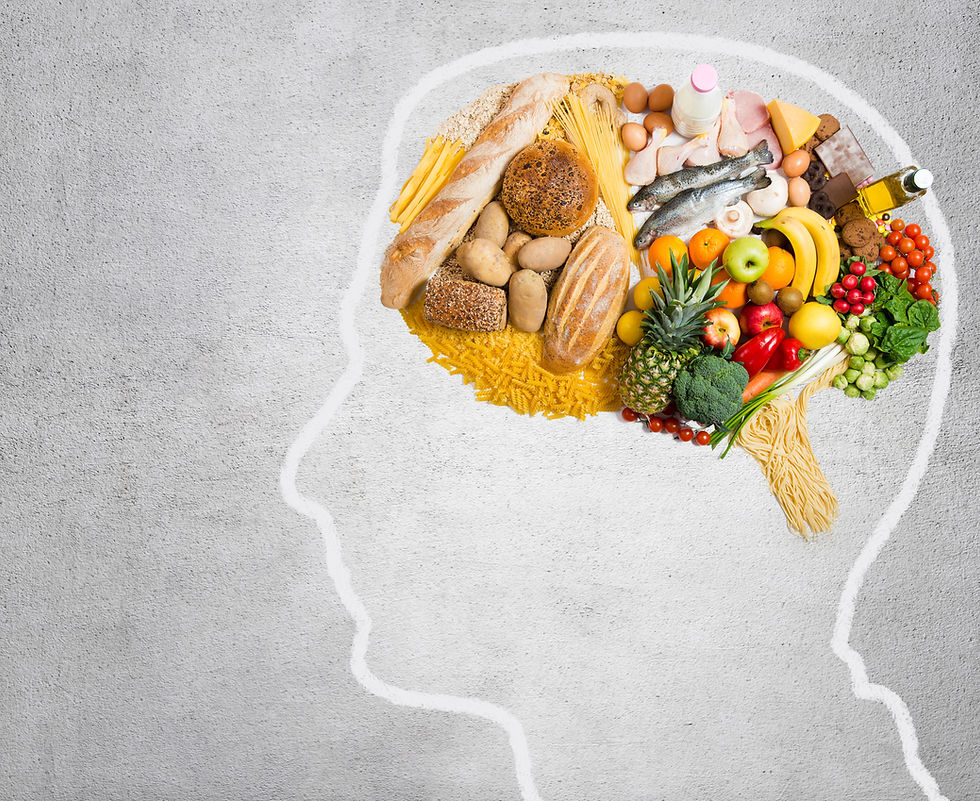
Eating well is about more than just looking and feeling our best physically. More and more research shows that good nutrition affects our mental health, too. Food’s impact on our mood can be obvious at times—hanger, anyone?—but it can also affect us in ways we may not notice right away.
It all comes back to how nutrition affects the brain. More specifically, the role gut health plays on brain health.
How gut health affects the brain
The gastrointestinal (GI) tract is home to trillions of microbes that perform many functions in the body, one of those being sending messages to the brain to regulate everything from sleep to appetite to mood. This networking system is so robust that people have started calling the gut the “second brain.”
Eating the right food helps support healthy, diverse microbe colonies in the gut, which in turn influences brain health—including our mental and emotional health. The better the food, the better “fuel” it becomes for the brain and other systems of the body, whereas the “bad” foods can start to take a toll over time.
For example, things like sugary snacks and alcohol have been shown to exacerbate anxiety symptoms and occasional stress. There’s also a correlation between symptoms of anxiety and a diet high in saturated fat and low in fruit.
Overall, we have more consistent energy levels when we eat a healthy diet, not to mention it helps keep us fuller for longer and prevent pesky cravings—which in turn helps with mood and focus.
While we’re still learning about how nutrition affects the brain, many studies show that a nutrient-dense diet has multiple benefits for our mental well-being.
Feeding your brain with nutrition
Our brains like “clean” foods, aka, simple, whole foods without any artificial ingredients. This includes foods you typically find in the Mediterranean diet, including:
Vegetables (especially leafy greens)
Fruit
Fish
Chicken
Nuts
Olive oil
Beans
Whole grains
Greek yogurt
A diet rich in these food sources means you will be getting plenty of vitamins, minerals, protein, fiber, and omega-3s—all nutrients our bodies need to keep functioning optimally. Fueling our bodies with the best nutrients helps us feel better physically and mentally.
Now that you know which foods to add (or keep!) in your diet to support mental health, let’s turn to the foods you should avoid. If mental health is an area of your life you’ve been needing to focus on, avoiding these foods will be a step in the right direction:
Sugar. This includes candy, soda, desserts, and anything else with a lot of added sugar.
Simple carbohydrates (cereal, white bread, etc.)
Processed foods. This includes anything from pre-made meals you find at the grocery store to fast food. By the way, ready meals often contain a lot of sugar - just look at the list of ingredients!
Caffeine
Alcohol
Fried foods
You may want to keep a food diary for a few months to track how you feel as you eliminate or add certain foods. You most likely won’t notice huge changes immediately, but over time you should start to see some positive patterns.
Mindful eating
When life gets chaotic or when you’re feeling overwhelmed, many people tend to either eat too much or not enough, which affects us mentally as much as physically. We turn to comfort foods at the expense of weight gain and erratic energy levels, or we skip meals, leading to lethargy and powerful cravings. These tendencies can become habits if we let them, which is why mindful eating—during all phases of life—is so important. Paying attention to what we’re eating helps establish stable eating habits that benefit us both physically and mentally.
Here are a few mindful eating tips to keep in mind:
Focus on your food, not your screens. Turn off the TV and put your phone away. Without these distractions, you’ll be able to focus on what you’re eating and when you get full. Often when we eat while doing other things we overeat because we’re too distracted to notice when we hit that “comfortably full” point.
Serve out your portions. Rather than eating straight from the container, put a set amount in front of you and put the container away.
Eat slowly. If you snarf down your food, you’ll be more likely to miss the signals your body is sending that it’s full.
Think about why you want to eat. Are you reaching for a snack because you’re bored or stressed, or is it because your stomach is growling and you’re low on energy? Make sure you’re responding to your body’s physical need for food.
Let water help you out. If you’re craving a treat or starting to feel hungry, drink a cold glass of water first. This can help dampen that craving and may even satiate your hunger for a while (especially since we sometimes mistake thirst for hunger) .
Let mindful eating guide you to the right foods at the right time, but don’t overthink it.
Establishing a baseline of good nutrition
A healthy, nutritious diet is just one part of a person’s lifestyle that impacts mental health. Nutrition alone isn’t going to cure all your ailments, but supplementing nutrition with exercise and other healthy habits can make a noticeable difference, especially if you maintain a nutritious diet long term.


Comments